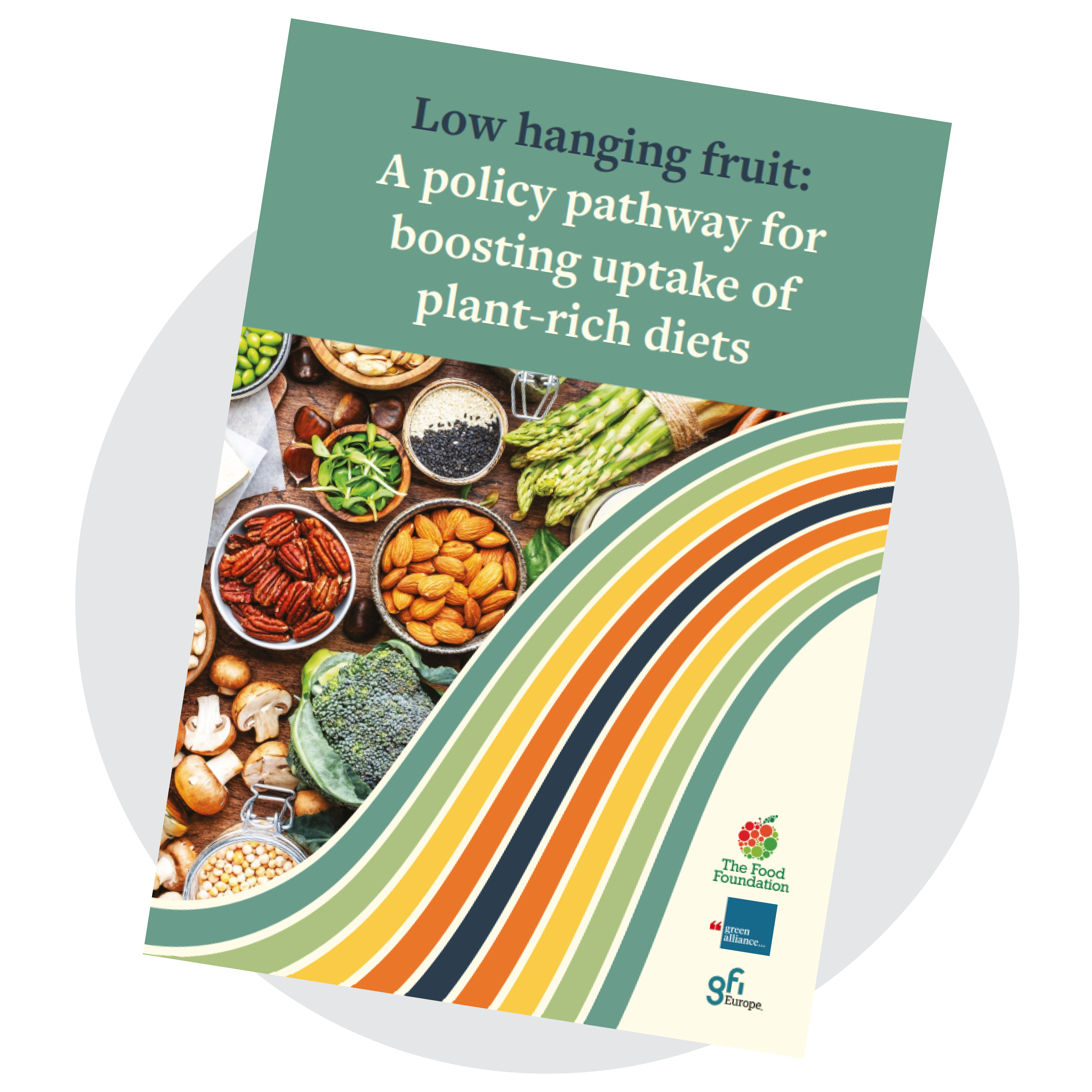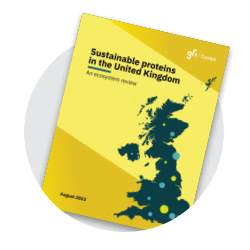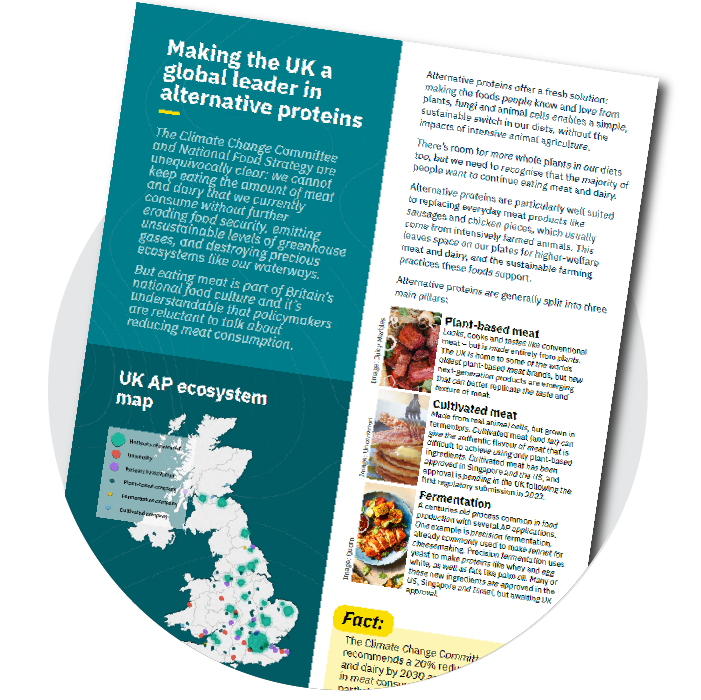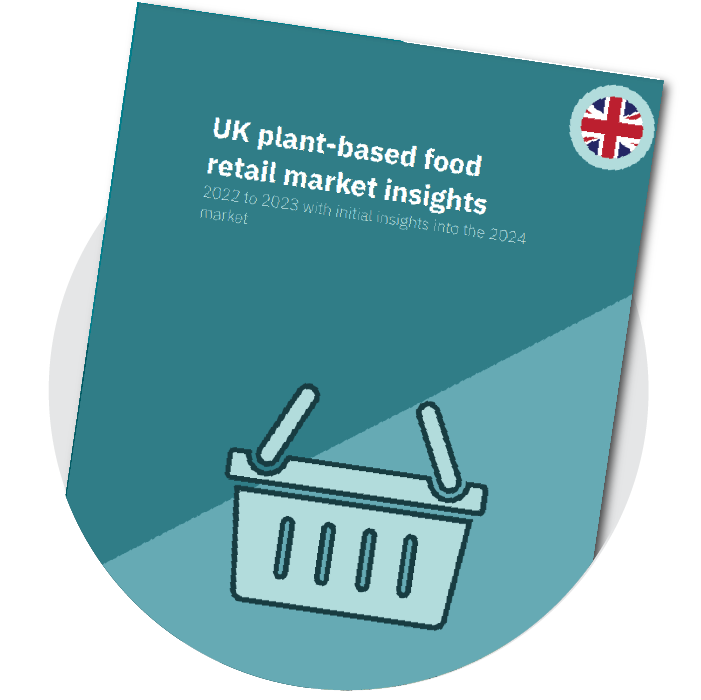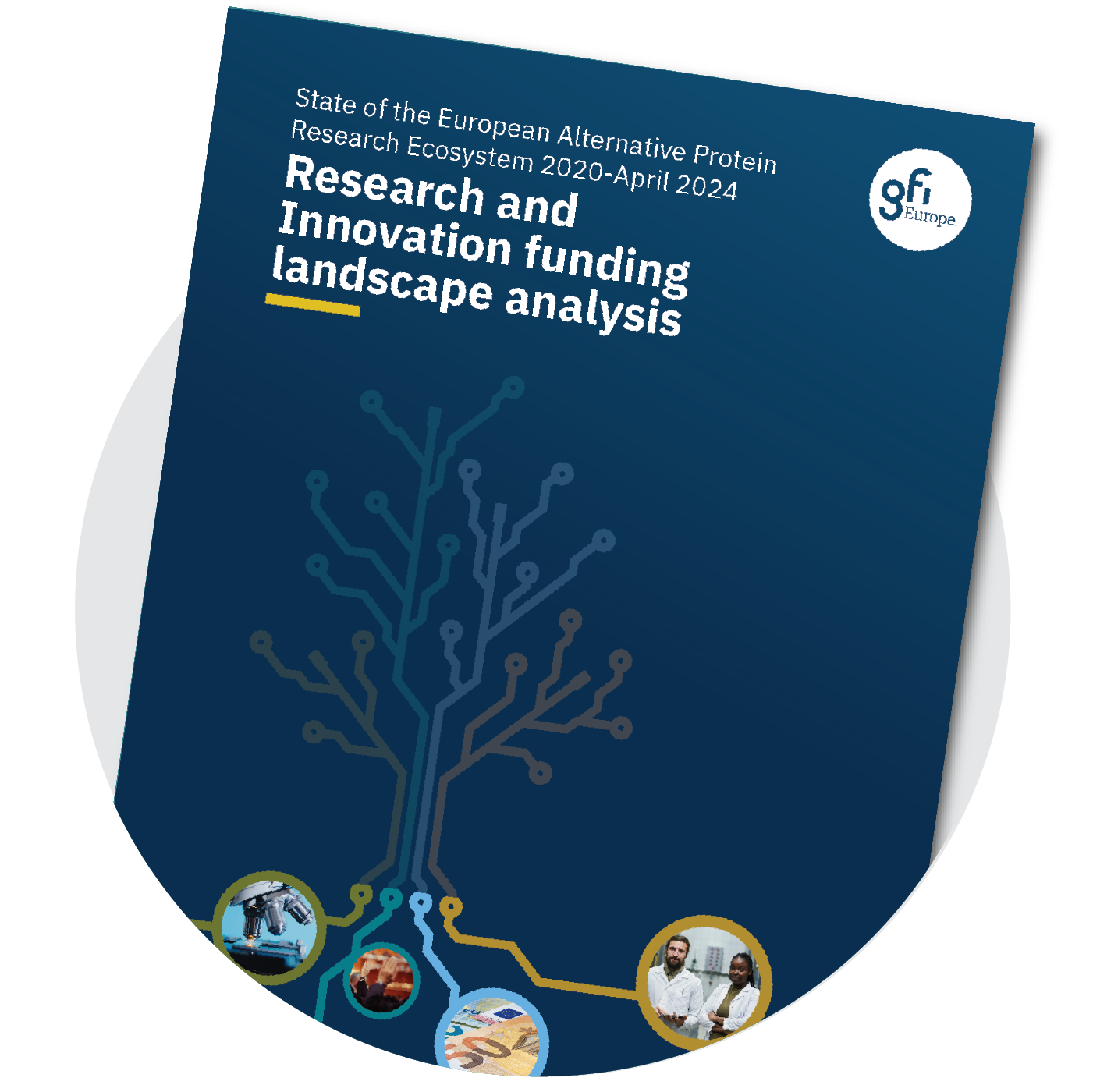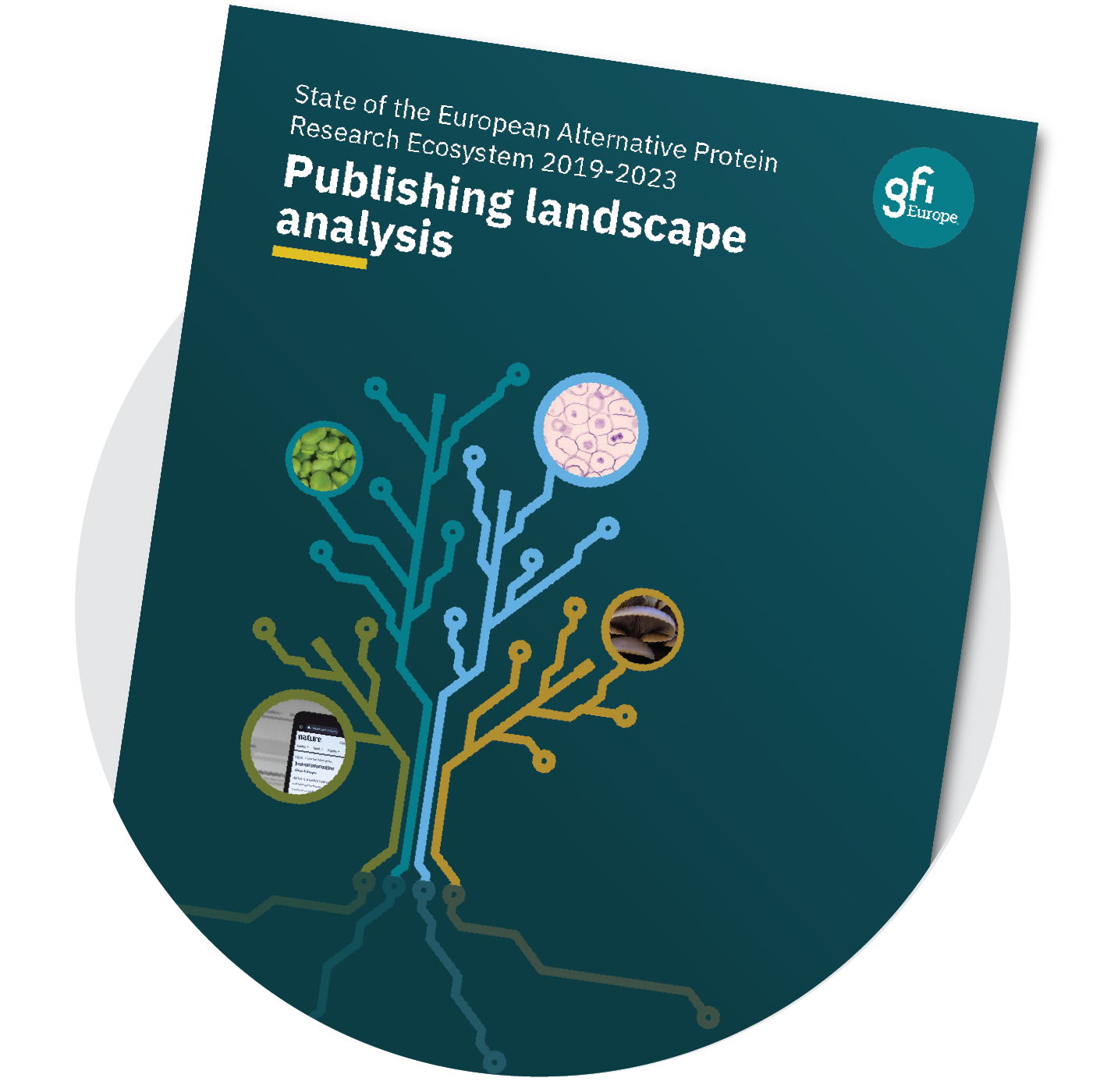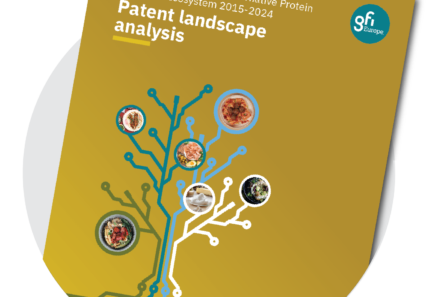Alternative proteins in the United Kingdom
With world-class scientific institutions, innovative food producers and a strong plant-based market, the UK has the potential to be at the forefront of the transition to alternative proteins.

The UK’s alternative protein opportunity
The UK Government has expressed an ambition to develop and scale up alternative proteins in Britain, most clearly in its Food Strategy. The remainder of this decade will be crucial to deliver on this aspiration and unlock the environmental and societal benefits of plant-based, fermentation-made and cultivated meat, seafood, eggs and dairy. With decisive political leadership and ambitious policies, the UK can become a home for this dynamic new green industry.
“The idea of being forced to cut back on meat is unpopular with many consumers. There is something culturally sacred about a freeborn Englishman’s right to a plate of bangers or a Sunday roast. It may prove easier to reduce the meat content in ready meals and convenience foods, where alternative proteins may soon match the taste and texture of, say, mince, but at a fraction of the price.”
National Food Strategy, 2021

Driving economic growth through innovation
The UK has a proud history of leading the world in scientific fields like crop breeding, genomics and biomanufacturing. Drawing on that bedrock of expertise, UK scientists can lead the charge in addressing critical R&D bottlenecks, unlocking tastier and more affordable alternative proteins.
Investing in these foods will create green jobs and economic opportunities throughout the country. Research has shown that alternative proteins could generate up to 25,000 jobs in food manufacturing, agriculture and other fields by 2035, adding £6.8 billion to the economy.
“The UK is home to a budding [cultivated meat] industry with innovation happening across the supply chain.”
National Vision for Engineering Biology (2023)
Building a healthier and more resilient food system
Since 2012, the UK has imported an average of 2.6 million tonnes of meat and dairy a year, equivalent to 30kg per person annually. Rather than depending on imports in an increasingly volatile world, diversifying the UK’s domestic protein supply offers a much more efficient way to produce food sustainably, helping to future-proof our food supply from external shocks.
Plant-based and cultivated meat can help satisfy some demand for animal-based foods while creating space for more agroecological farming practices and nature restoration. Analysis shows that even a modest shift to alternative proteins by 2050 could release an area of land the size of Wales and Yorkshire combined (21% of the UK’s total farmed area). This extra space, coupled with better financial incentives, can support farmers to incorporate climate and nature goals into their business practices.
Several recent studies have pointed to a significant public health opportunity from swapping some of the vast quantities of processed meat we eat in the UK with plant-based meat options, with particularly compelling findings for cardiovascular health and weight management. Plant-based meat is higher in fibre and lower in saturated fat, providing people with nutritious choices without sacrificing convenience and familiarity.
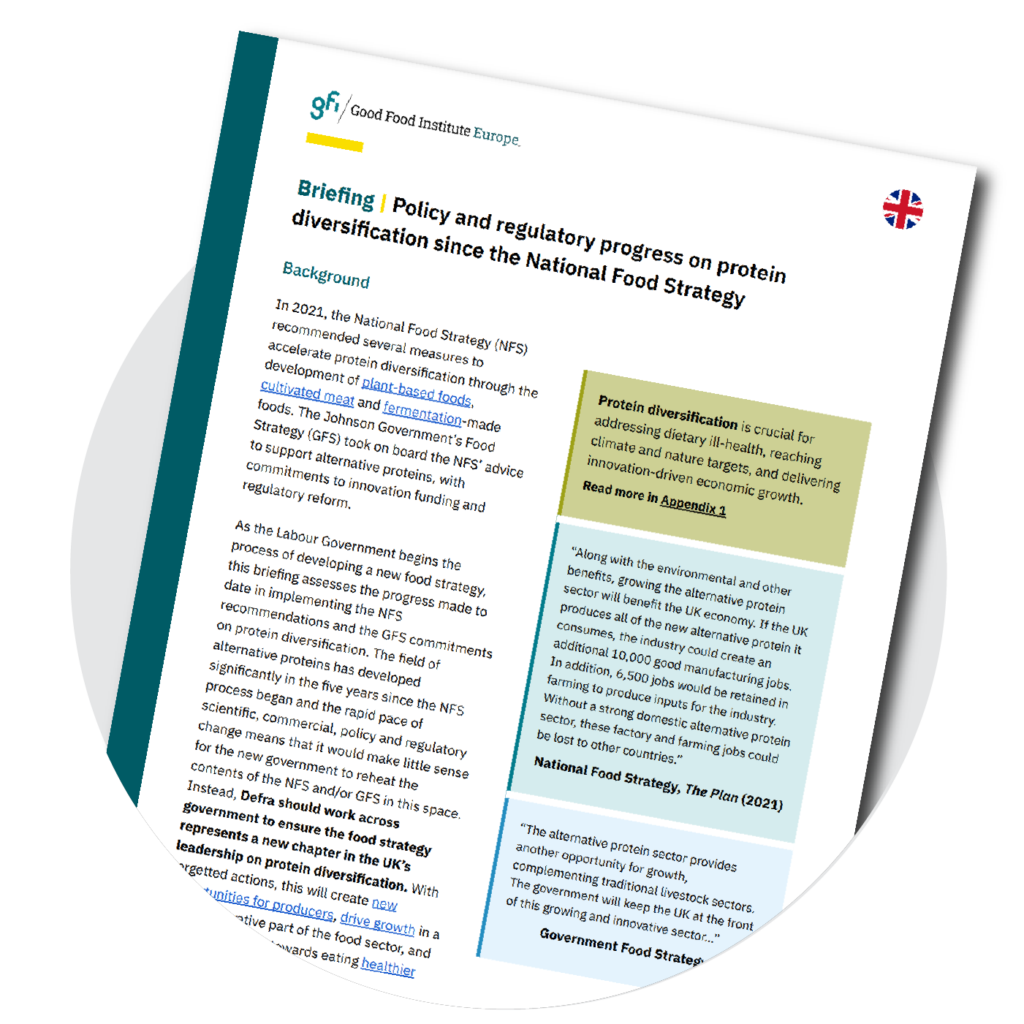
Policy and regulatory progress on protein diversification since the National Food Strategy
In 2021, the National Food Strategy (NFS) recommended several measures to accelerate protein diversification through the development of plant-based foods, fermentation-made foods, and cultivated meat. The Johnson Government’s Food Strategy (GFS) took on board the NFS’ advice to support alternative proteins, with commitments to innovation funding and regulatory reform. As the Labour Government begins to develop a new food strategy, this briefing assesses the progress made to date in implementing the NFS recommendations and the GFS commitments on protein diversification.
GFI Europe partners with FSA in cultivated meat regulatory sandbox
The Good Food Institute Europe (GFI Europe) is partnering with the UK’s Food Standards Agency (FSA) in its regulatory sandbox for cultivated meat.
The sandbox aims to boost the FSA’s scientific knowledge about cultivated meat, help them make informed decisions about product safety and guide companies on how to effectively demonstrate that their products and processes are safe, in line with the UK’s existing novel foods regulatory framework.
Our role will be to enable startups and researchers around the world to share their expertise with UK regulators, ensuring that the FSA has access to the widest and most detailed information possible.
“We are thrilled to be working closely with the FSA on this collaborative project, which sends a clear message that the UK government wants to capitalise on the strong investments made in British cultivated meat innovation and bring products to market in a way that upholds the UK’s gold standard safety regulations.”
Linus Pardoe, Senior UK Policy Manager at GFI Europe
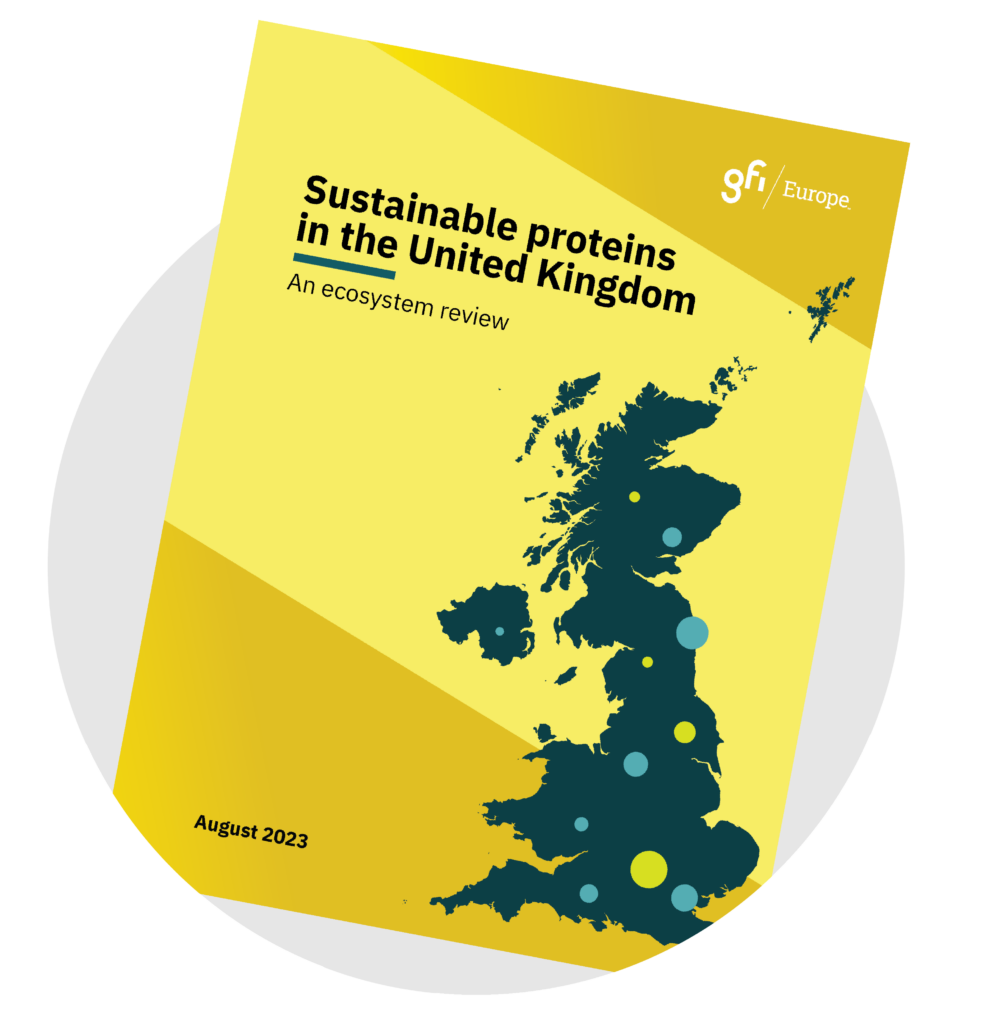
Advancing the UK’s alternative protein ecosystem
British entrepreneurs, food producers and scientists need an enabling environment to make new discoveries, grow innovative businesses and produce alternative proteins which are affordable and delicious. In this report, we analyse the development of the academic and commercial alternative protein ecosystem in the UK. Our deep-dive sheds light on public investments, research at British universities, and where the UK has areas of the potential to create regional alternative protein clusters.
Spotlight on plant-based foods in the United Kingdom

Over the last decade, plant-based foods have become an established part of how millions of people eat and drink. Our latest analysis finds that more than 30% of UK households bought plant-based milk or meat at least once in 2024.
However, plant-based foods still struggle to compete on taste and price – the top two barriers to eating more plant-based foods. To find out more, read our analysis of the current state and future trajectory of the UK’s maturing plant-based food market.
Resources

Our UK expert
Linus Pardoe leads GFI Europe’s work in the UK, supporting policymakers to optimise the policy and regulatory landscape so that the UK becomes a world-leader in alternative proteins. He has a background in social policy and research.
